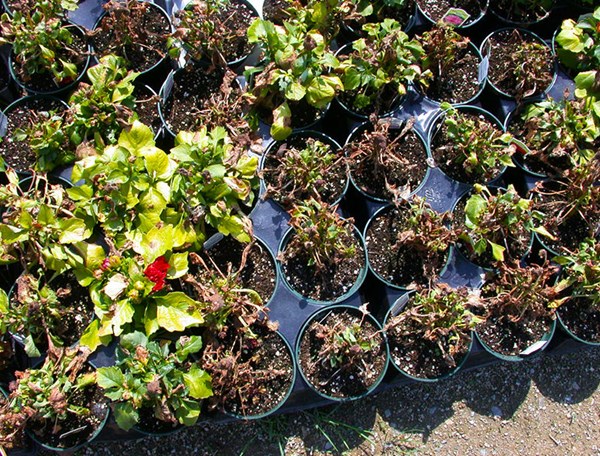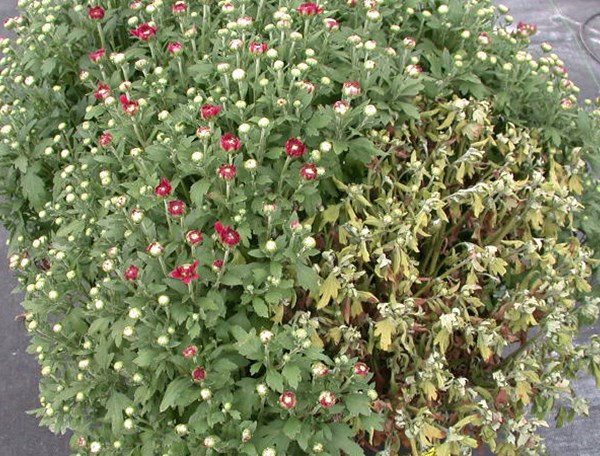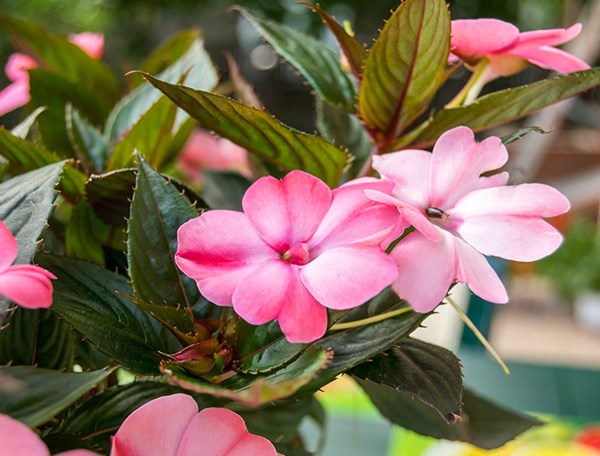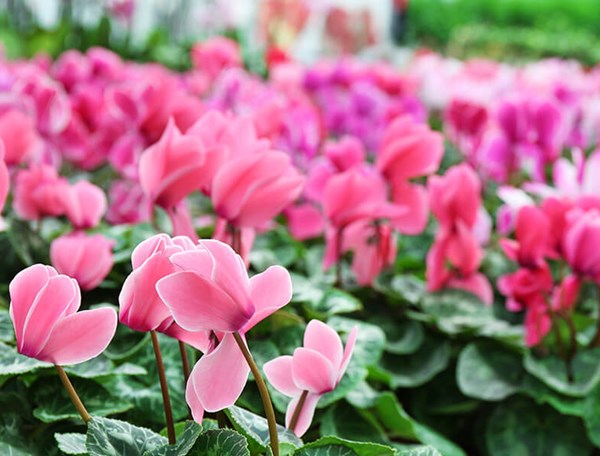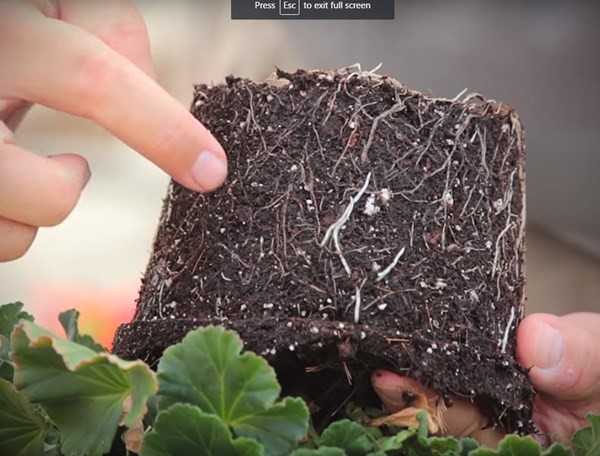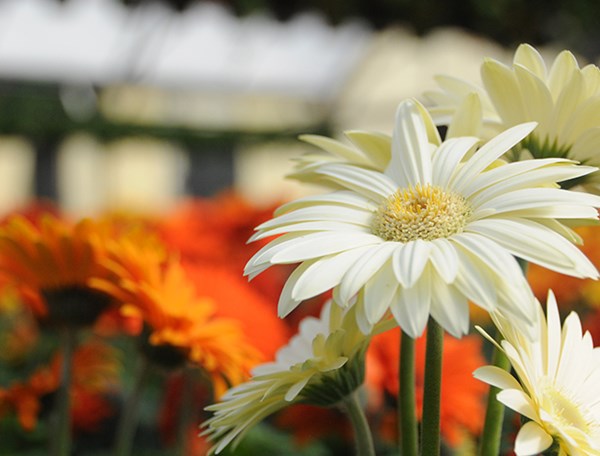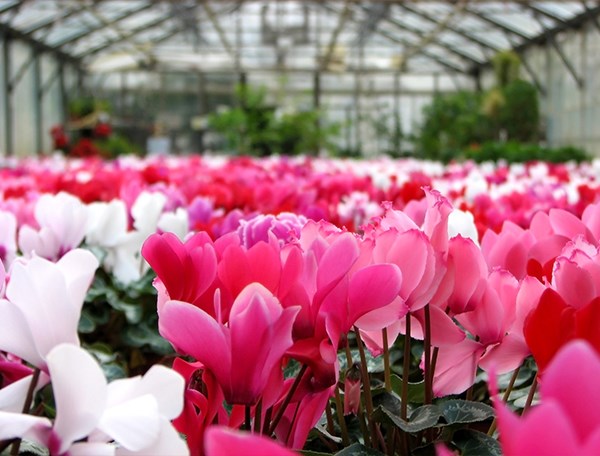Training Center
Pathogen Profile: Alternaria
Thursday, September 7, 2023 | Troy Buechel
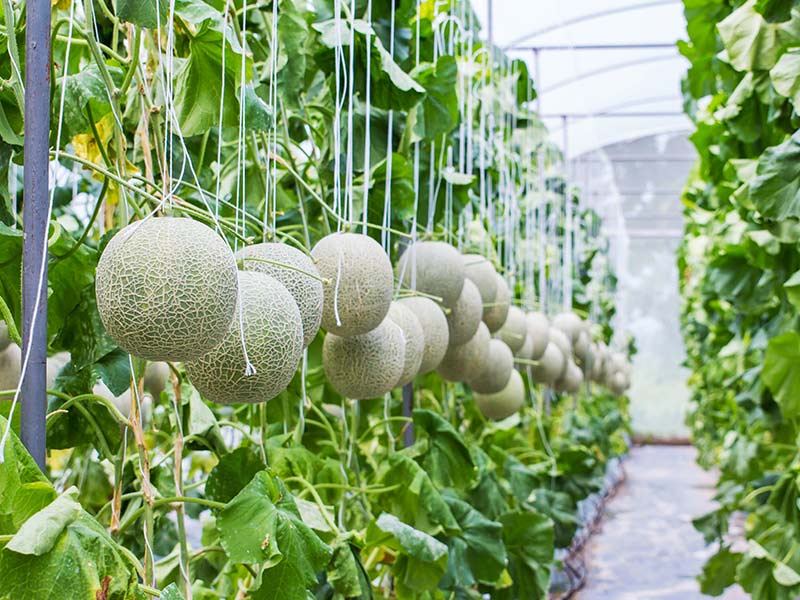
Alternaria is a genus of ascomycete fungi that is often associated with decay and decomposition of plant residues. It is found everywhere in the natural environment. However, many species are also plant pathogens that typically infect foliage, flowers or fruits in many types of annuals, perennials and vegetable plants. In some cases, Alternaria has been found to parasitize plants at or below the soil line. Alternaria is not commonly associated as a root disease pathogen, but it can cause root damage that may result in plant death.
Root and Stem Infection
Alternaria survives and can overwinter as spores and mycelium in infected plant residues (leaves, stems, tubers, etc.) and on or in seeds. If Alternaria spores are on or in seed, they can germinate with the seed causing damping off in seedlings. More frequently, Alternaria diseases come from plant residues that can infect young and more mature plants causing stem lesions or collar rot. During periods of rain fall, heavy dew or high moisture conditions in the soil, Alternaria will grow and sporulate outdoors or inside a greenhouse. Alternaria infections often appear as dark sunken lesions that can appear on roots, tubers, stems and fruits. Mycelium growth appears on lesions as fine, black fuzzy growth that quickly produce gray to black spores.
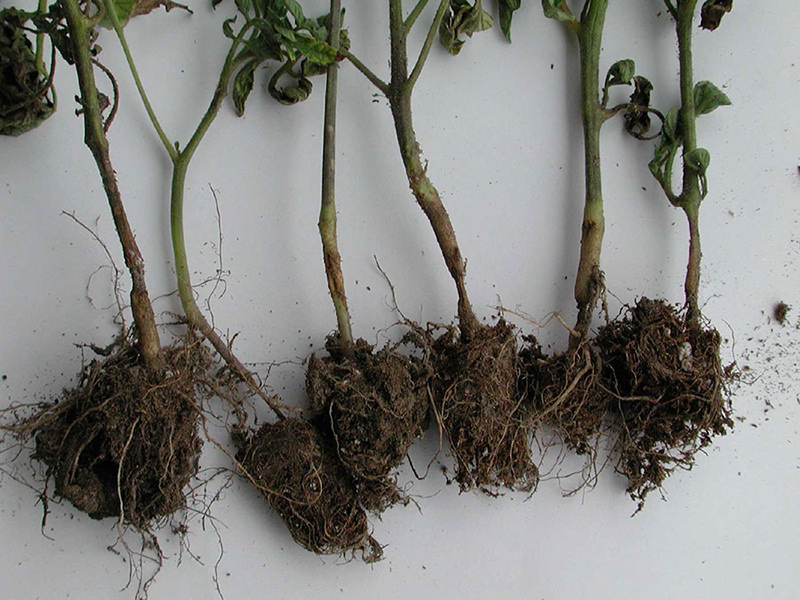
Young tomato plants showing collar rot from Alternaria. Notice the constriction and browning of the stems just above the root ball. Source: http://www.omafra.gov.on.ca/IPM/english/tomatoes/diseases-and-disorders/damping-off.html
Foliar Infection
On leaves, it appears as round ‘targets’ with concentric circles around the infection site. This is a unique expression and can be used as a diagnostic tip to help identify this disease. Commonly there is a yellow halo around these spots due to the toxins emitted by Alternaria. As with other plant tissue, these spots will have fine, black fuzzy growth with gray to black spores.
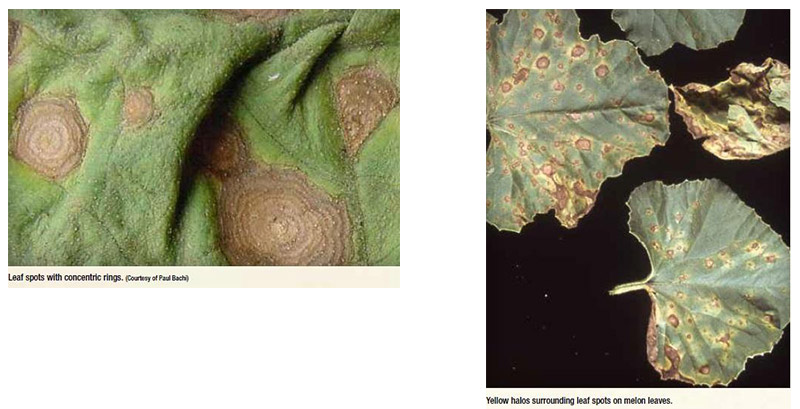
Cantaloupe leaves infected with Alternaria. Notice the concentric rings in both pictures giving the spot a target look. Source: https://www.bighaat.com/pages/fungal-diseases
Disease Development
Alternaria spores can be spread by wind or splashing water onto plant surfaces where infection can begin. Like Botrytis, the spores need free moisture to germinate and they will grow into stomatal opening or wounds. Plants that are under-fertilized, have weak growth, damaged tissue or are under stress, are more susceptible to infection from Alternaria. Alternaria prefers warmer temperatures around 80oF (27oC) and infection rates significantly drop when the temperature is below 53oF (12oC).
Disease Management
Like most pathogens, if plant roots are infected with Alternaria, do not reuse the growing medium. Discard containers or properly sanitize them before reusing. Remove infected plant residues from the greenhouse and eliminate weeds as they can become infected by Alternaria which can spread to greenhouse crops. Use disease-free seed as Alternaria spores can, in a few cases, be found inside the seed under the seed coat. Some species of Alternaria require ultraviolet light to produce spores, so use of ultraviolet light absorbing film can greatly reduce the incidence of this disease. There are many chemical products that can be drenched or applied as a foliar spray to control Alternaria so consult with your distributor or university extension service for more information.
For more information, contact your Premier Tech Grower Services Representative:
 |
 |
 |
 |
|---|---|---|---|
|
Ed Bloodnick |
Nathan Wallace-Springer |
Lance Lawson |
Victor Brantly |
 |
 |
 |
|
|
Troy Buechel |
Susan Parent |
Jose Chen Lopez |
References:
- Alternaria Diseases. https://anrcatalog.ucanr.edu/pdf/8040.pdf
- Alternaria Diseases of Carrot. https://apsjournals.apsnet.org/doi/pdf/10.1094/PDIS.2004.88.8.776
PRO-MIX® is a registered trademark of PREMIER HORTICULTURE Ltd.
Related Articles
-
Preventing Root Diseases: Pre-Planting, Planting and Post-Planting Tips
Root diseases can lead to considerable losses in crops, increased fungicide applications and reduced crop quality. There are several useful tips that, when followed, will help improve the growing environment to reduce potential root disease outbreaks.
-
Featured Root Rot Pathogen: Pythium
Of all the root rot pathogens, Pythium is the most common problem that growers experience.
-
Root Disease Profile: Fusarium
The combination of plant material, moisture and certain environmental conditions can favor plant root diseases.
-
Root Disease Profile: Phytophthora
Pathogens are always present in the greenhouse and are a continuous challenge for growers.
-
How watering influences root disease in your crops
Premier Tech Horticulture Specialist Troy Buechel gives some advices about the relationship between watering and root disease.
-
Root Disease Triangle: Pathogens, Host and Environment
When growing greenhouse crops, it is simply a matter of time before problems occur. To correct a problem, it is necessary to know what it is and what is causing it.
-
Rhizoctonia Root Rot: Symptoms And How To Control
With a wide host range, Rhizoctonia can cause a variety of diseases including stem rot, root rot, damping-off in seedlings and aerial blight of leaves.

 Where to find our products
Where to find our products
